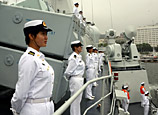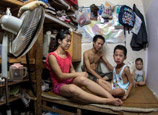
In 2011, the Federal Aviation Administration put the value of a human life at $6 million. But again, Danko said, that estimate applies only in US courts. Foreign courts can be expected to pay far smaller settlements.
The South Korean government agency that regulates that country's insurance industry expects Asiana's insurers to pay out about $175.5 million in total - $131 million to replace the plane and another $44.5 million to passengers and the city of San Francisco for damage to the airport.
The international treaty offers international passengers five options to seek compensation: where they live, their final destination, where the ticket was issued, where the air carrier is based and the air carrier's principal place of business.
Foreign passengers who had round-trip tickets to final destinations beyond the US face tough legal challenges to pursue their claims against the airline in the United States, where courts are more receptive to lawsuits and the payouts larger than in the courts of most other nations.
Asiana can also argue that it's more convenient for it to litigate the Asian victims' cases in Asia because all parties are based there.
South Korean attorney Suh Dong-hee, who represented some of the victims of the 1997 Korean Air Lines crash in Guam, said family members of the victims who pursued their case in the United States settled for as much as 100 times more than those who sued in South Korea.
But foreign passengers are still able to sue others who may have contributed to the accident, such as the plane's manufacturer, airport personnel and even, perhaps, the first responders, experts said.

















 Migrant workes' high incomes not that rosy
Migrant workes' high incomes not that rosy


![]()
